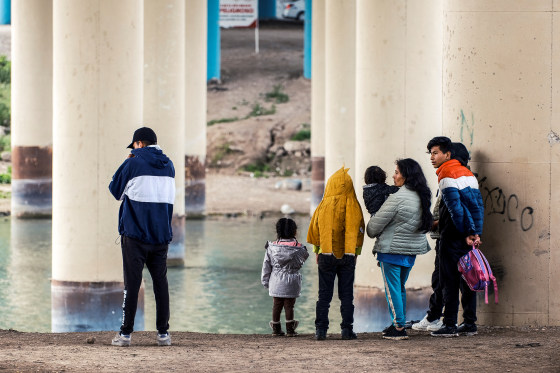A new family reunification parole process will soon allow certain immigrants from Ecuador with relatives in the U.S. to be considered for humanitarian entry, the Department of Homeland Security announced Wednesday.
Qualifying Ecuadorians must have a relative in the U.S. who is an American citizen or a permanent resident who can sponsor them for an immigrant visa. The family reunification parole process would be granted in a case-by-case basis “upon a demonstration of urgent humanitarian reasons or significant public benefit,” according to DHS.
In a statement, the department said the move is part of a larger commitment from President Joe Biden's administration to expand legal immigration pathways and reduce illegal crossings at the U.S.-Mexico border.
“Establishing this process for certain Ecuadorian nationals will ensure more families can access lawful pathways rather than placing themselves at the mercy of smugglers to make the dangerous journey,” Homeland Security Secretary Alejandro Mayorkas said. “Those who do not avail themselves of family reunification parole or other lawful, safe, and orderly pathways and attempt to enter the United States unlawfully will continue to face tough consequences.”
For more from NBC Latino, sign up for our weekly newsletter.
This is the first time the Biden administration has created a parole process for Ecuadorians, who have recently arrived at the southern border in larger numbers, up from 3,700 in August 2022 to 13,700 this past August.
The rise in Ecuadorians journeying to the U.S. coincides with an escalation in drug violence in the country over the past three years. Killings, kidnappings, robberies and other criminal activities have increasingly become part of everyday life in Ecuador.
The family reunification program for Ecuadorians mirrors similar initiatives already available to certain Cuban, Haitian, Colombian, Salvadoran, Guatemalan and Honduran immigrants.
Under the program, those paroled into the U.S. will generally be considered for parole for up to three years. They will also be eligible to request a work permit while they wait for their immigrant visa. When their visa becomes available, they may apply to become a lawful permanent resident.
The federal register notice detailing eligibility criteria and the application process had not been published as of early Thursday afternoon. DHS said it will soon become available.

